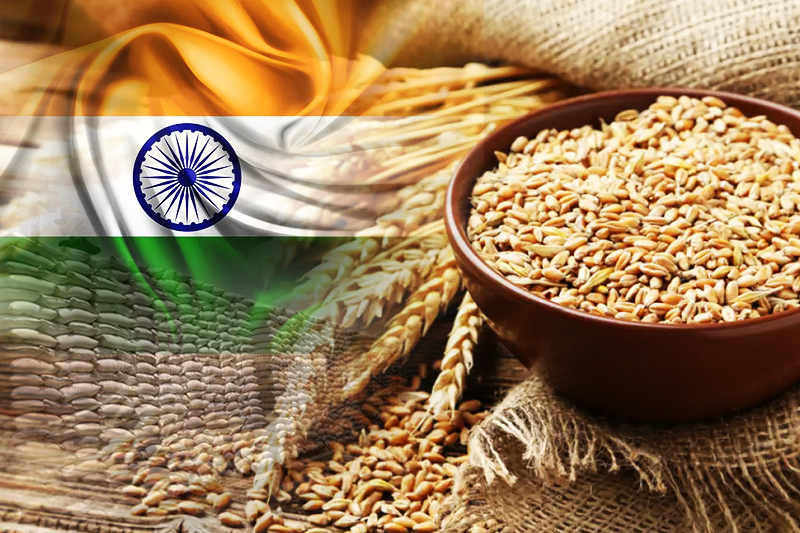Ban on wheat exports, curbs on rice shipments to stay

To safeguard consumers from any spike in domestic prices in the coming months, the government is understood to have decided against lifting the ban on exports of wheat and wheat products such as atta this year.
It is not considering lifting the prohibition on shipment of broken rice either. The export tax of 20% on white rice imposed in September 2022 will also likely stay through this fiscal.
Retail inflation in wheat and rice stood at 15.46% and 11.37% respectively in April.
“We are keeping the option of imposing stock-holding limits to improve supplies,” an official told FE. “We are still competitive globally despite export taxes on certain varieties of rice,” the official said, negating the chances of any relaxation on export restrictions.
India’s rice exports rose by more than 15% on year to a record $11.1 billion in FY23 and 22 million tonne (MT) in terms of volume despite imposition of restriction on rice shipments.
The ban on shipment of wheat in May 2022 except on shipments under government-to-government arrangements for food security — was necessitated by a drop in the production of the cereal in the 2021-22 crop year (July-June) and procurement by government agencies dropping 56.6% to only 18.8 MT against 43.3 MT purchased from the farmers in the 2021-22 season (April-June).
In September, India, the world’s biggest rice exporter with 40% share in global trade, had imposed ban on broken rice exports and put 20% export tariffs on the non-basmati and non-parboiled rice, a measure that was aimed at improving domestic supplies amid expectation of a decline in production in 2022-23 crop season (July-June).
However, in February this year, the agriculture ministry estimated rice production for the 2022-23 crop year at a record 130.83 MT.
A high-level inter-ministerial committee has been monitoring prices of essential commodities on a regular interval.
Currently, the mandi prices of wheat are ruling around the minimum support price (MSP) of `2,125/quintal for 2023-24 season.
Sources said that with the government buying more than 26 MT from farmers under the MSP operations in 2023-24 season so far, up 39% on year, there would be sufficient grain available to carry out open market sale of the commodity for bulk purchasers if prices rise.
The government is also likely to initiate open market sale of wheat from July if there is a spike in prices in the coming months. As per earlier policy, the Food Corporation of India has been selling surplus wheat to bulk buyers such as flour millers and food companies during the lean season (January-March).
The procurement of rice in the 2022-23 season (October-September) by FCI and state agencies has crossed 51.56 MT so far against total purchase during previous year’s 57.58 MT.
As on May 18, FCI has wheat and rice stock of 31.95 MT and 27.14 MT respectively. Buffer for July 1 is 27.58 MT (wheat) and 13.54 MT (rice).
For implementation of the national food security act, the government needs 36 MT of rice and 18.4 MT wheat annually. Current grain stock of 59 MT includes 15.3 MT of rice yet to be received from millers.
Read also
Cargill has commissioned a solar power plant at its processing plant in Australia
US issued new recommendations for ships passing through the Strait of Hormuz
500 thsd tons of corn could have accumulated in wagons on the approaches to Ukrain...
BLACK SEA GRAIN.KYIV- Agenda Announced!
EUPPA reports 7.5 million tons of EU potato processing in 2025
Write to us
Our manager will contact you soon



